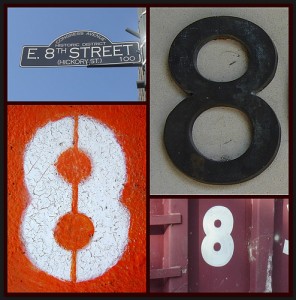What To Know About Florida’s Amendment 8
Politics and history are mixing in the debate over Amendment 8 on this fall’s ballot, The News Service of Florida reports.
Amendment 8 would delete language from the Florida Constitution banning public money spent “directly or indirectly in aid of any church, sect or religious denomination or in aid of any sectarian institution.”
(You can read the ballot question wording, and how it would amend the state constitution, here.)
Here’s how the News Service of Florida frames the debate:
For supporters of the amendment, failure to adopt it could cripple faith-based organizations, putting them “one lawsuit away” from losing vital taxpayer dollars for services like prison ministries, soup kitchens and disaster relief. But opponents say overturning the 127-year-old ban would dismantle a critical bulwark of the separation of church and state and open the door for vouchers that would siphon money away from public education.
Those who back the amendment say the original no-aid provision of the constitution was approved as part of a wave of measures, known as “Blaine amendments” for their federal sponsor, adopted in the latter half of the 19th Century to ensure that Catholic private schools would never receive taxpayer money, despite the Protestant tilt of public schools.
Aside from school-choice litigation, the provision has largely lingered since then. But supporters of the amendment say it became a threat again after a group known as the Council for Secular Humanism filed suit to cut off state support for two prison ministries run by faith-based organizations. If the suit succeeds, supporters of the amendment fear, a wide swath of social services could be disrupted.
The issue will likely be one of the most contentious in the fall’s election.
Supporters and opponents have already taken the debate to Facebook. And radio ads urging people to vote against the amendment are running in some Florida markets.
Jon East, who handles policy and communications for the non-profit which manages Florida’s low-income private school scholarship program, says the amendment will not open the door to private schools:
First, the no-aid clause is irrelevant to Florida’s current judicial precedent on school vouchers. The state Supreme Court, in its 2006 Bush v. Holmes ruling, found Opportunity Scholarships to be unconstitutional because they violated Article IX provisions requiring a “uniform” public school system. The court, in fact, steered clear of a lower court ruling that invalidated the scholarships based on the Blaine Amendment – a decision that may well have been influenced by the U.S. Supreme Court’s 2002 Zelman v. Simmons-Harris decision. In Zelman, the U.S. Supreme Court found parents could use public funds to pay for religious schools provided the parents were making a genuine and independent choice. In all of Florida’s private school choice programs, parents control which school receives the public funds. There is no government coercion.
Second, the largest private learning option in the state, tax credit scholarships that served 40,249 low-income students this past year, is constitutionally distinct from vouchers.
But opponent aren’t buying that argument.
The Alachua County school board approved a resolution opposing Amendment 8. Board member Eileen Roy summed it up this way, according to the Gainesville Sun:
“It’s the very death of public schools,” she said. “That’s not overstating it, in my opinion.”
We’ll be covering the debate throughout the fall, so stay tuned.


